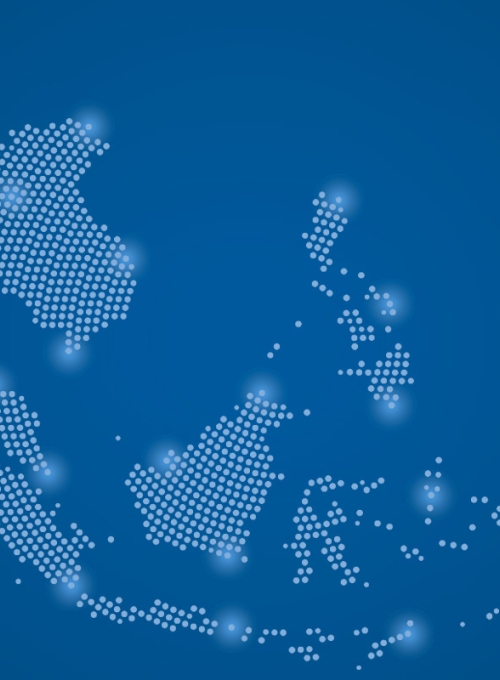
2024 Southeast Asia Dialogue Meeting Materials
With participation from Indonesia, Malaysia, the Philippines, Singapore, Thailand & the United States
Meeting Materials
Hosted by
The Johns Hopkins Center for Health Security
16 – 18 April 2024
W Hotel Singapore in Sentosa Cove, Great Room 2 Singapore
Download the Agenda (PDF) Download the Participant Bios (PDF)
Agenda
Day 1 - 16 April 2024
| 9:00 - 9:20 | Welcome & Meeting Goals Tom INGLESBY, Director, Johns Hopkins Center for Health Security, USA Anita CICERO, Deputy Director, Johns Hopkins Center for Health Security, USA |
| 9:20 - 9:30 | Opening Remarks Andrew HOLLANDS, Indo-Pacific Division Chief, Biological Threat Reduction Program, Defense Threat Reduction Agency, US Department of Defense |
| 9:30 - 10:30 | Participant Introductions Each participant will introduce herself/himself, including their current position and organization, the principal focus of their work, and the biosecurity challenge they are most concerned about. Please limit introductions to 90 seconds each. For this dialogue, we define “biosecurity” as the policies, programs, and actions taken to prevent, prepare for, and respond to biological threats, whether they are natural, accidental, or deliberate. |
| 10:30 - 11:00 | Coffee & Tea Break |
| 11:00 - 12:30 | Dialogue Session One: Biothreat Overview & National Biosecurity Priorities
Opening remarks (3-5 minutes each), followed by group discussion. |
| 12:30 - 1:30 | Lunch at The Kitchen Table |
| 1:45 - 3:00 | Dialogue Session Two: The Road to Resilience Against Future Threats
Opening remarks (3-5 minutes each), followed by group discussion. |
| 3:00 - 3:30 | Coffee & Tea Break |
| 3:30 - 4:15 | Presentation: Establishing Singapore’s Communicable Diseases Agency Marc HO, Head of Transition, Communicable Diseases Agency Planning Office, Ministry of Health, Singapore Presentation, followed by Q&A. |
| 4:15 | Day 1 Adjourns |
| 6:00 | Dinner at W Lawn |
Day 2 - 17 April 2024
| 9:00 - 10:30 | Dialogue Session Three: The Convergence of Biology & Emerging Technologies
Opening remarks (3-5 minutes each), followed by group discussion. |
| 10:30 - 11:00 | Coffee & Tea Break |
| 11:00 - 12:30 | Dialogue Session Four: Medical Countermeasures Development, Production Capacity & Stockpiling Strategies The COVID-19 pandemic illustrated the critical importance of rapidly scaling up development and production capacity for novel medical countermeasures (MCMs). During the pandemic, only a small handful of countries or regions were able to establish production capacity to meet domestic needs, while the rest of the world essentially had to wait until those countries fulfilled their own demand before being able to access vaccines and other drugs. In the absence of formal international agreements, countries may have to fend for themselves in a future pandemic.
Opening remarks (3-5 minutes each), followed by group discussion. |
| 12:30 - 1:30 | Lunch at The Kitchen Table |
| 1:45 - 4:30 | Site Visit: Singapore National Centre for Infectious Diseases (NCID) **We will go straight from NCID to the Asia CHS launch event. We will not return to the W Hotel- Sentosa Cove until after dinner.** |
| 1:45 | Board Shuttle to NCID |
| 2:30 | Welcome & Group Photo |
| 2:40 | NCID Presentations Vernon LEE, Executive Director, NCID |
| 3:10 | Discussion and Q&A |
| 3:40 | NCID Tours High-Level Isolation Unit & NCID Gallery Poh Lian LIM, Director, High-Level Isolation Unit, NCID |
| 4:30 | Board Shuttle to Asia CHS Launch Event |
| 5:00 - 9:00 | Launch Event for the Asia Centre for Health Security (Asia CHS) One Farrer Hotel, Level 6, Wisteria & Camellia Villa. Hosted by Asia CHS. |
| 5:00 | Cocktail Hour |
| 6:00 | Dinner |
| 9:00 | Launch Event Concludes |
| 9:15 | Board Shuttle & Return to W Hotel- Sentosa Cove |
Day 3 - 18 April 2024
| 9:00 - 9:30 | Presentation: WHO Laboratory Biosecurity Guidance, 2nd Edition Kazunobu KOJIMA, Biorisks & Health Security Protection Unit, WHO As biological technologies and capabilities continue to expand rapidly around the world, governments are struggling to keep pace with regulation and oversight of high-consequence research. Technical guidance exists—such as the WHO Laboratory Biosecurity Guidance, which is expected to be updated soon with a 2nd edition—to support national governments in these efforts, but governments around the world face many barriers to establishing and implementing appropriate risk mitigation frameworks to address associated accidental and deliberate risks. Presentation, followed by Q&A. |
| 9:30 - 10:30 | Dialogue Session Five: Laboratory Biosafety & Biosecurity
Opening remarks (3-5 min each), followed by group discussion. |
| 10:30 - 11:00 | Coffee & Tea Break |
| 11:00 - 12:15 | Dialogue Session Six: Ministry of Defense Approaches to Biosecurity & Priorities in Southeast Asia
Opening remarks (3-5 minutes each), followed by group discussion. |
| 12:15 - 12:45 | Roundtable Discussion & Final Thoughts
|
| 12:45 | Dialogue Adjourns Lunch available at The Kitchen Table |
